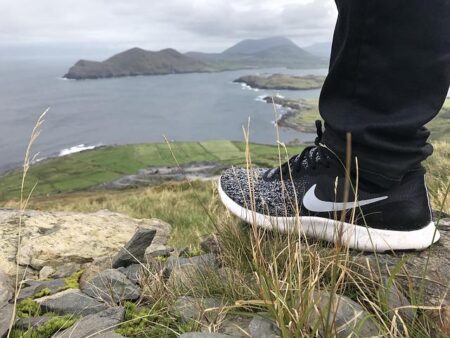Georgia has officially become the 30th state to permit high school athletes to engage in name, image, and likeness (NIL) deals, marking a significant shift in the landscape of amateur sports in the state. This development, announced recently, allows student-athletes to profit from endorsements and sponsorships while maintaining their eligibility to compete at the high school level. The move aligns Georgia with a growing number of states embracing NIL opportunities, reflecting the evolving conversation around athlete compensation nationwide.
Georgia Joins Growing List of States Permitting High School Athletes to Profit from NIL
In a groundbreaking move, Georgia has officially authorized high school athletes to engage in Name, Image, and Likeness (NIL) deals, placing the state among the growing number nationwide embracing this shift. This legislation empowers young athletes to monetize their personal brands through endorsements, social media promotions, and local sponsorships, all while maintaining their amateur status. Stakeholders emphasize that the law opens new opportunities for athletes to gain financial rewards and professional experience without compromising their educational commitments.
Key Highlights of Georgia’s NIL Policy Include:
- Students retain full control over their NIL rights and contractual decisions.
- Schools are prohibited from restricting or profiting from athlete NIL activities.
- Mandatory disclosure of NIL agreements to school athletic departments to ensure transparency.
- Protections against NIL activities that conflict with team values or school code of conduct.
| State | Year NIL Allowed | High Schools Impacted |
|---|---|---|
| California | 2021 | 900+ |
| Florida | 2022 | 1200+ |
| Georgia | 2024 | 500+ |
Implications for Student Athletes and High School Sports Programs Across Georgia
With Georgia joining the growing list of states permitting Name, Image, and Likeness (NIL) deals for high school athletes, student-athletes across the state now face new opportunities and challenges. For many athletes, this legal shift opens the door to significant financial benefits as they leverage personal brands built through social media, athletic performance, and community engagement. Schools and sports programs will need to adapt quickly, ensuring athletes receive proper education on contract negotiations, financial literacy, and compliance with both state and governing athletic body regulations to safeguard their eligibility and future prospects.
High school sports programs in Georgia must also reconsider their approach to athlete management and public relations. The integration of NIL could lead to increased competition among programs not just on the field, but in marketing and promotion efforts. Administrators will likely face pressures to balance athlete endorsements with the integrity of team dynamics. Consider the following implications for stakeholders:
- Enhanced recruitment appeal: Programs offering NIL support may attract top talent eager to monetize their image.
- Need for institutional support: Schools might provide workshops, mentorship, or legal resources related to NIL transactions.
- Monitoring compliance: Critical to prevent improper benefits that could affect athlete eligibility.
| Stakeholder | Primary Concern | Opportunity |
|---|---|---|
| Student Athletes | Contract understanding and balancing commitments | Monetize personal brand while in school |
| Coaches & Staff | Maintaining team unity amid endorsements | Recruit top talent with NIL support programs |
| School Administrators | Ensuring compliance with new regulations | Enhancing school recognition and sponsorship |
Navigating Compliance and Regulatory Challenges Under Georgia’s New NIL Legislation
With the recent legislation enabling high school athletes in Georgia to engage in Name, Image, and Likeness (NIL) deals, stakeholders face a complex web of compliance and regulatory requirements. Athletic programs, coaches, and families must now carefully navigate rules established by school districts, the Georgia High School Association (GHSA), and state laws to avoid potential violations that could jeopardize eligibility. This evolving landscape demands clear understanding of permissible endorsements, disclosure mandates, and contract restrictions designed to protect both athletes and the integrity of high school sports.
To assist in compliance management, schools and athletes should pay close attention to key regulatory elements such as:
- Transparency: Mandatory reporting of any NIL agreements to school officials.
- Prohibited Categories: Restrictions on endorsements involving tobacco, alcohol, or gambling products.
- Agent Representation: Enforcement of guidelines for third-party involvement to prevent exploitation.
| Compliance Area | Key Considerations | Potential Risks |
|---|---|---|
| Contract Disclosure | Report all NIL deals within 10 days | Eligibility suspension for late disclosure |
| Endorsement Restrictions | No endorsements from restricted industries | Contract nullification and penalties |
| Agent Oversight | Ensure agents comply with state guidelines | Loss of athlete’s NIL privileges |
Recommendations for Schools, Coaches, and Families to Maximize Benefits and Minimize Risks
To safeguard student-athletes while maximizing the opportunities NIL deals present, schools, coaches, and families must establish clear guidelines and maintain open communication. Education on financial literacy and contract law should be prioritized to help young athletes understand the implications of their agreements. Schools can implement workshops or partner with legal advisors to ensure that athletes are not exploited, while coaches should encourage transparency and support balanced commitments to both sports and academics. Families need to actively participate in negotiations, ensuring deals align with the athlete’s long-term goals and well-being.
Additionally, creating a collaborative network among all parties can help monitor the athlete’s engagement with NIL opportunities. Below is a simple framework that schools and families might use to evaluate offers and potential risks:
| Evaluation Criteria | Key Considerations | Recommended Actions |
|---|---|---|
| Legitimacy | Verify the reputation of the brand or business. | Research and confirm authenticity before signing. |
| Financial Terms | Assess contract value, payment schedule, and obligations. | Consult with a financial advisor or lawyer. |
| Time Commitment | Impact on training, schoolwork, and rest. | Limit engagements that conflict with priorities. |
The Conclusion
As Georgia joins the growing list of states permitting high school athletes to profit from their name, image, and likeness, the move marks a significant shift in amateur sports regulation. Advocates argue that allowing NIL deals empowers young athletes with control over their own opportunities, while critics caution about potential challenges related to recruitment and fairness. As the 30th state to embrace this policy, Georgia’s implementation will be closely watched as a bellwether for the evolving landscape of high school athletics nationwide.





